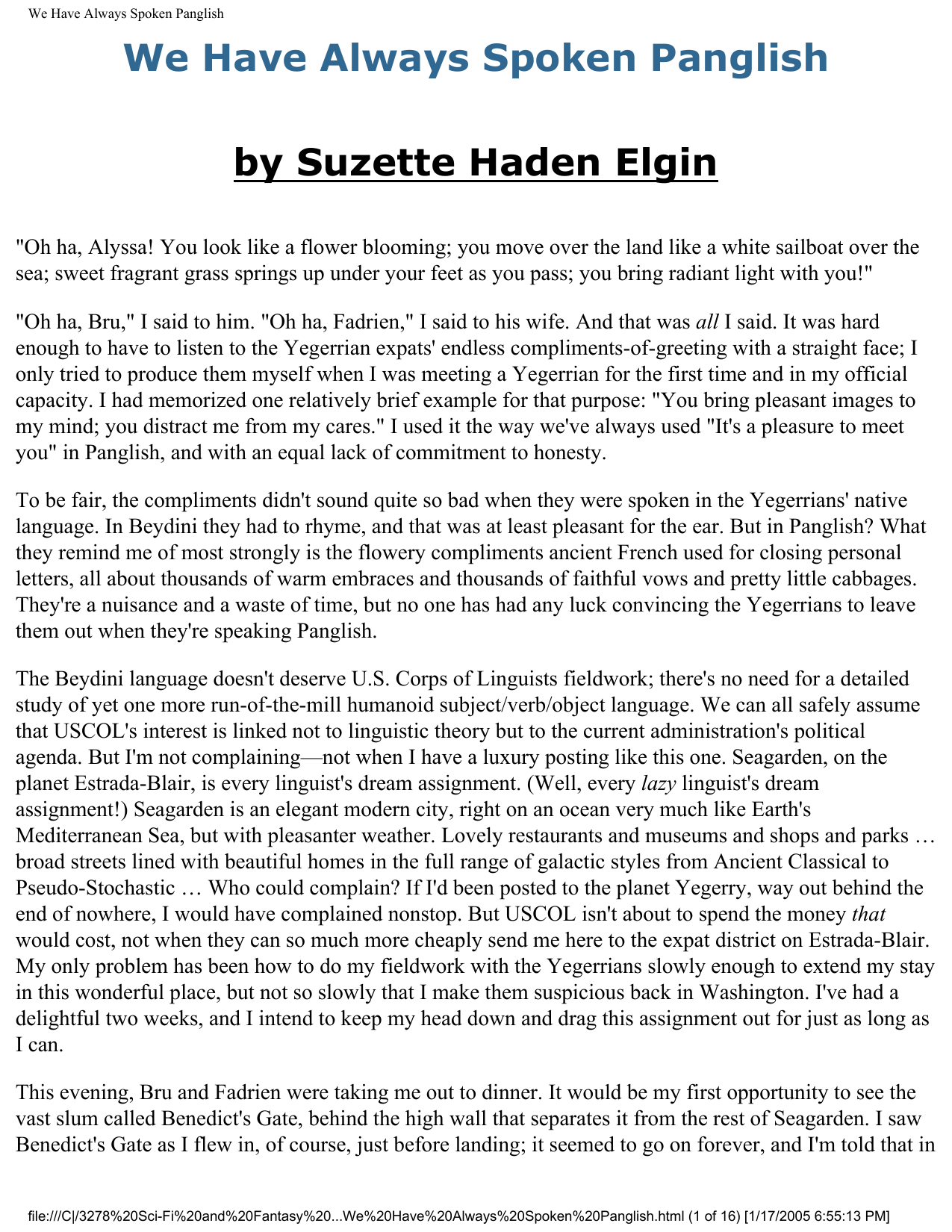


Books in series

Native Tongue
1984

The Judas Rose
1987

Earthsong
1994

We Have Always Spoken Panglish
2004
Author

Suzette Haden Elgin was an American science fiction author. She founded the Science Fiction Poetry Association, and is considered an important figure in the field of science fiction constructed languages. Elgin was also a linguist; she published non-fiction, of which the best-known is the Gentle Art of Verbal Self-Defense series. Born in 1936 in Missouri, Elgin attended the University of California, San Diego (UCSD) in the 1960s, and began writing science fiction in order to pay tuition. She has a Ph.D. in linguistics, and was the first UCSD student to ever write two dissertations (on English and Navajo). She created the engineered language Láadan for her Native Tongue science fiction series. A grammar and dictionary was published in 1985. She is a supporter of feminist science fiction, saying "women need to realize that SF is the only genre of literature in which it's possible for a writer to explore the question of what this world would be like if you could get rid of [X], where [X] is filled in with any of the multitude of real world facts that constrain and oppress women. Women need to treasure and support science fiction." [1] In addition, she published works of shorter fiction. Overlying themes in her work include feminism, linguistics and the impact of language, and peaceful coexistence with nature. Many of her works also draw from her Ozark background and heritage. Elgin became a professor at her alma mater's cross-town rival, San Diego State University (SDSU). She retired in 1980.